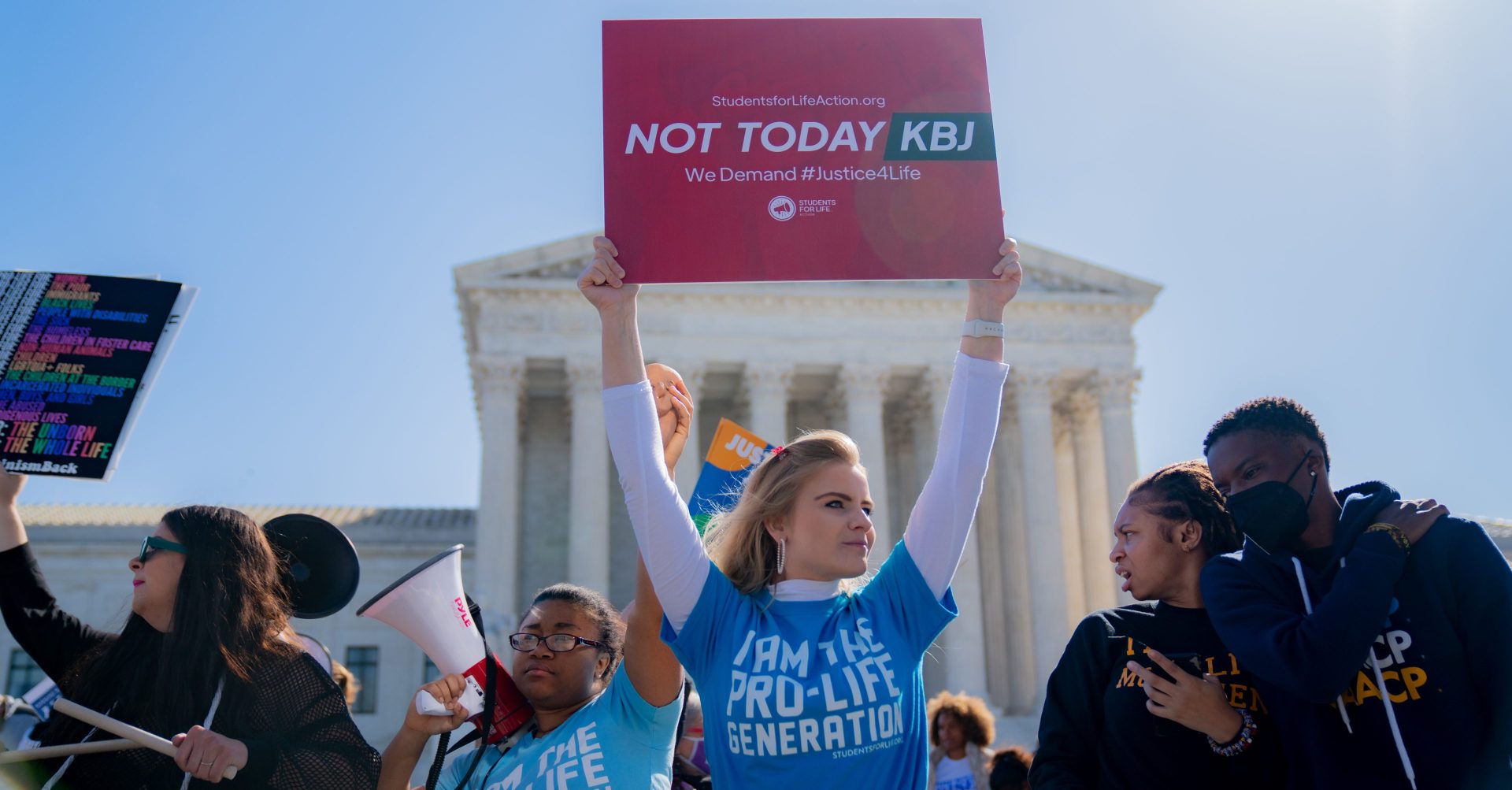


Get a free copy of Parental Rights & Education when you subscribe to our newsletter!

Americans will get their first opportunity to learn more about the judicial philosophy and worldview of Supreme Court nominee Ketanji Jackson during hearings this week before the Senate Judiciary Committee, the first step of her confirmation process.
First confirmed to the bench as a federal district court judge in 2013 and then to the U.S. Court of Appeals for the District of Columbia in June 2021, Jackson nonetheless has a sparse judicial record on key issues like abortion, free speech, and religious liberty. She does bring unique legal experiences. She clerked for three federal judges, including retiring Supreme Court Justice Stephen Breyer, and worked for four different elite law firms in Washington D.C. and Boston, where her clients included the League of Women Voters and Abortion Access Project of Massachusetts, the state affiliate of NARAL Pro-Choice.
Jackson also worked as both a staffer and vice chair for the U.S. Sentencing Commission and as an assistant federal public defender in Washington D.C., which means that if she is confirmed she would be the first Supreme Court justice since Thurgood Marshall to have criminal defense experience.
Jackson also has the dubious distinction of having had a large number of her judicial rulings overturned at the appellate level, making her willingness to adhere to the letter of the Constitution questionable and her predisposition to bring her own views into a case a major concern.
Republicans say they will question Jackson specifically on her “judicial philosophy,” including her reasoning on her District Court rulings, especially those decisions that were later overturned, like Trump v. AFL-CIO and Make the Road New York v. McAleenan.
Here are some of her positions on key Constitutional issues of concern to Christians:
Jackson has made no rulings on abortion but did write an amicus brief in favor of NARAL, a pro-abortion group. Jackson’s brief in the case, McGuire v. Reilly supported a law creating a buffer zone which prevented pro-life protestors from gathering outside abortion clinics.
While Jackson was clerking for Justice Breyer, Breyer ruled in Stenberg v. Carhart that a Nebraska ban on partial birth abortion was unconstitutional.
While her record on abortion is scarce, support from abortion groups is not. NARAL tweeted, “BREAKING: Ketanji Brown Jackson is President Biden’s nominee to the Supreme Court. We need a justice on the bench who will uphold reproductive freedom. This historic nomination is a chance to shape the Court for decades to come.”
Planned Parenthood tweeted, “Some GOOD news!! Judge Jackson is making history. This nomination arrives as our rights are in crisis, and we believe Judge Jackson will bring a commitment to the Court to protect our individual liberties, including reproductive and LGBTQ+ rights. #JusticeForAll”
Meanwhile pro-life groups are protesting her confirmation. Elizabeth Nogueras, special events coordinator for Students for Life of America, said, “Judge Jackson would rule to advance abortion procedures even into late term pregnancies if she had the chance. She’s proven this anticipation with her past.”
Jackson’s record on free speech is also sparse. The aforementioned McGuire represents a free speech case, as well as an abortion one, as the pro-life protestors were prevented from speaking near the clinic. Jackson later said she “was assigned to work on this amicus brief… among other projects” and “[did] not recall how [she] came to work on this assignment.” She added, “In that brief is a legal argument that was made on behalf of my amici-clients” and “[a]s a pending judicial nominee and a sitting federal judge, it would be inappropriate for me to opine on the constitutionality of buffer zones that government officials might establish in hypothetical circumstances.”
In Patterson v. United States, the plaintiff was a protestor who was arrested after making several profane statements. Jackson ruled, “It is well established that where, as here, there is an allegation of retaliatory arrest in the absence of probable cause, the plaintiff has a viable First Amendment claim.” She ruled that a person cannot be arrested without probable cause for protected speech, including “the right to use profanity.”
In Tyson v. Brennan, Jackson ruled that a postal service employee’s case could proceed after he claimed that he was disciplined for playing gospel music while others were allowed to play secular music.
In 2014, Jackson dismissed complaints against Judge Edith Jones arguing that she advocated her personal religious views on the death penalty in a law school lecture.
When Jackson was a clerk for Breyer, the Court ruled in Santa Fe Independent School District v. Doe that it was unconstitutional for the school district to allow student-led prayer at football games.
Jackson also once served on the board of directors of Montrose Christian School. During her confirmation hearings to the U.S. Appeals Court for the District of Columbia, Sen. Josh Hawley, R-Mo., questioned Jackson on the school’s statement of faith, which said, “[w]e should speak on behalf of the unborn and contend for the sanctity of all human life from conception to natural death” and that “[m]arriage is the uniting of one man and one woman in covenant commitment for a lifetime.” Jackson responded, “I do believe in religious liberty” calling it a “foundational tenet of our entire government.” However, she said that she had “served on many boards” and did not “necessarily agree with all of the statements…that those boards might have in their materials” and “was not aware” of the statement.